-
 bitcoin
bitcoin $109547.008142 USD
0.04% -
 ethereum
ethereum $4011.838726 USD
-0.05% -
 tether
tether $1.000402 USD
-0.01% -
 xrp
xrp $2.798606 USD
0.88% -
 bnb
bnb $970.877944 USD
1.39% -
 solana
solana $202.237275 USD
-0.95% -
 usd-coin
usd-coin $0.999673 USD
0.00% -
 dogecoin
dogecoin $0.229294 USD
-1.15% -
 tron
tron $0.336370 USD
-0.45% -
 cardano
cardano $0.777260 USD
-1.66% -
 hyperliquid
hyperliquid $45.503019 USD
1.73% -
 ethena-usde
ethena-usde $1.000362 USD
0.01% -
 chainlink
chainlink $20.785303 USD
-1.10% -
 avalanche
avalanche $28.755822 USD
-0.11% -
 stellar
stellar $0.358303 USD
-0.48%
What are Soul Bound Tokens (SBTs)?
Soul Bound Tokens (SBTs) are non-transferable digital credentials that bind to a wallet, enabling trustless verification of identity, reputation, and achievements in Web3.
Sep 20, 2025 at 08:18 pm

Understanding Soul Bound Tokens (SBTs)
1. Soul Bound Tokens (SBTs) are a type of non-transferable digital token introduced as a concept to represent commitments, credentials, and affiliations in decentralized ecosystems. Unlike traditional cryptocurrencies or NFTs, SBTs cannot be sold or transferred between wallets, making them uniquely tied to the identity of their holder.
2. The idea was popularized by Vitalik Buterin and other Ethereum researchers as a way to build a decentralized society (DeSoc). These tokens aim to reflect aspects of an individual’s social identity—such as educational degrees, work history, community memberships, or reputation—that remain persistent and unchangeable once issued.
3. Because SBTs are bound to a specific wallet or “soul,” they enable trustless verification of attributes without relying on centralized institutions. For example, a university could issue an SBT representing a degree, which can be publicly verified but never resold or faked.
4. This immutability and non-transferability help reduce fraud and sybil attacks in blockchain applications. By anchoring real-world relationships and achievements to on-chain data, SBTs create a richer layer of context for interactions within Web3 platforms.
5. SBTs open new possibilities for decentralized governance, lending, and access control. They allow protocols to assess credibility based on verifiable history rather than just financial collateral, shifting focus from pure economic power to social capital.
Technical Characteristics of SBTs
1. SBTs operate on blockchain networks using smart contracts that enforce non-transferability. Once minted, these tokens remain permanently in the recipient's wallet unless explicitly burned or revoked under predefined conditions set by the issuer.
2. They are typically built using extensions of existing token standards like ERC-721 or ERC-1155, with modifications that disable transfer functions such as transferFrom or safeTransferFrom. This ensures that ownership stays fixed.
3. Each SBT carries metadata describing its purpose—whether it's proof of attendance, membership in a DAO, or participation in a project. This data is stored either on-chain or via decentralized storage solutions like IPFS.
4. Wallets holding SBTs can be thought of as 'souls,' each accumulating a unique collection of tokens over time. These souls form reputational graphs that can be analyzed for trustworthiness, influence, or alignment with certain communities.
5. Interoperability between different systems is a key design goal. SBTs issued by one platform should ideally be readable and usable across various dApps, enabling seamless integration into identity layers, credit scoring models, or access management systems.
Potential Use Cases in the Crypto Ecosystem
1. In decentralized finance (DeFi), SBTs can serve as reputation-based collateral. Users with a history of responsible borrowing, proven through SBTs, might qualify for better loan terms without locking up assets.
2. DAOs can use SBTs to manage membership and voting rights. Long-term contributors could earn governance SBTs that grant increased influence, reducing the risk of plutocracy driven solely by token holdings.
3. Event organizers can issue SBTs as proof of attendance, replacing traditional tickets. These tokens become part of a user’s digital legacy and can unlock future benefits, such as exclusive content or early access.
4. Educational platforms and bootcamps may adopt SBTs to issue verifiable certifications. Employers scanning a candidate’s wallet could instantly confirm qualifications without contacting third parties.
5. SBTs can also support anti-sybil mechanisms by distinguishing genuine participants from bots or duplicate accounts, enhancing fairness in airdrops and community rewards.
Frequently Asked Questions
What happens if someone loses access to a wallet containing SBTs?Losing access to a wallet means losing all associated SBTs, since they cannot be transferred. Some proposals suggest using soul recovery mechanisms through trusted guardians or decentralized key management systems to mitigate this risk.
Can SBTs be revoked by the issuer?Yes, depending on how the smart contract is designed. Issuers may include revocation logic—for instance, if a credential expires or is found to be fraudulent. However, transparency and governance around revocation are critical to prevent abuse.
Are SBTs compatible with current NFT marketplaces?Most NFT marketplaces are built for transferable tokens, so standard platforms won’t display or support SBTs properly. Specialized interfaces and explorers will be needed to view and interact with soul-bound assets.
How do SBTs impact user privacy?While SBTs offer verifiable credentials, they raise privacy concerns because they create permanent records. Solutions like zero-knowledge proofs can allow selective disclosure, letting users prove possession of an SBT without revealing its details.
Disclaimer:info@kdj.com
The information provided is not trading advice. kdj.com does not assume any responsibility for any investments made based on the information provided in this article. Cryptocurrencies are highly volatile and it is highly recommended that you invest with caution after thorough research!
If you believe that the content used on this website infringes your copyright, please contact us immediately (info@kdj.com) and we will delete it promptly.
- Cheap AI Coding Revolution: Gemini 2.5 and the 1 Million Token Dream
- 2025-09-28 20:25:16
- Tether, Circle, and Competition: A Stablecoin Showdown in 2025
- 2025-09-28 20:25:16
- Layer Brett vs. Cardano: A Price Prediction Face-Off for 2025
- 2025-09-28 20:30:03
- Crypto Presale Alert: Unveiling the 500x Potential New Coins of 2025
- 2025-09-28 20:30:03
- Bitcoin Volatility, Whales, and Market Stir: What's the Deal?
- 2025-09-28 20:30:03
- XRP, Ripple, Price Prediction: Decoding the Crypto Crystal Ball
- 2025-09-28 21:05:12
Related knowledge
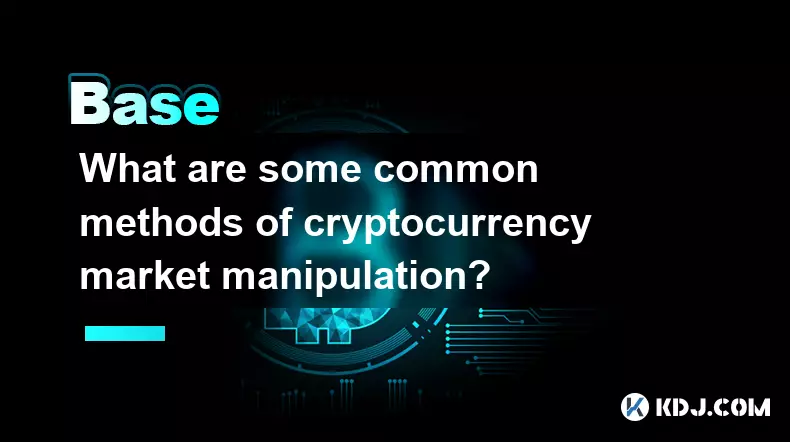
What are some common methods of cryptocurrency market manipulation?
Sep 27,2025 at 02:55am
Wash Trading and Its Impact on Market Perception1. Wash trading involves an individual or entity simultaneously buying and selling the same cryptocurr...
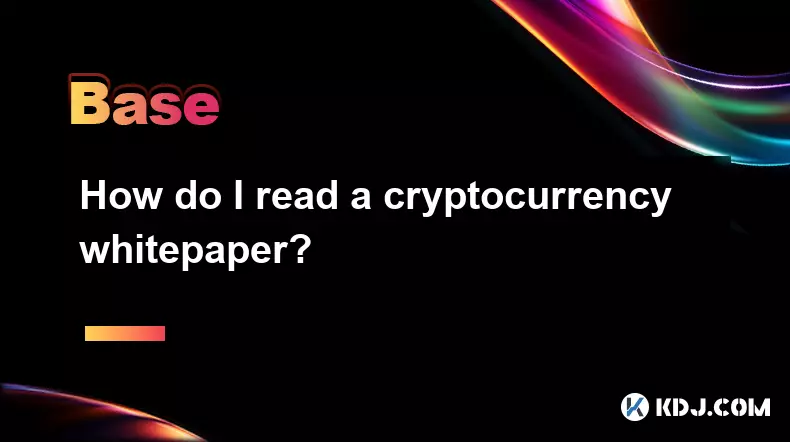
How do I read a cryptocurrency whitepaper?
Sep 27,2025 at 05:54am
Understanding the Structure of a Cryptocurrency Whitepaper1. Begin by identifying the executive summary, which outlines the project’s core vision and ...
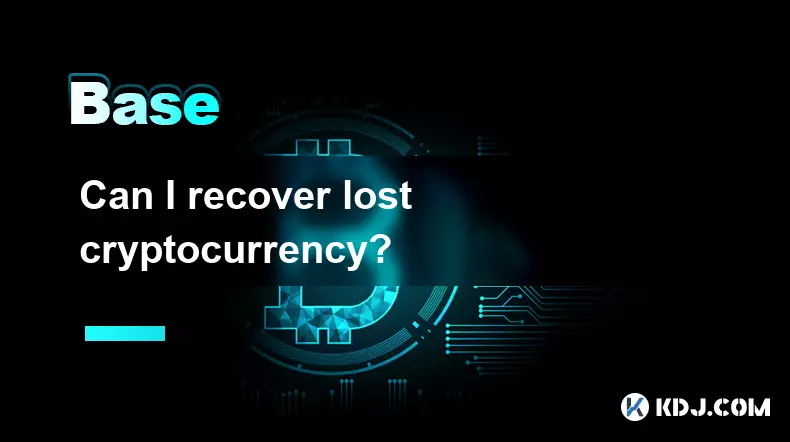
Can I recover lost cryptocurrency?
Sep 25,2025 at 08:18am
Understanding the Nature of Cryptocurrency Loss1. Cryptocurrency operates on decentralized networks, meaning there is no central authority to reverse ...
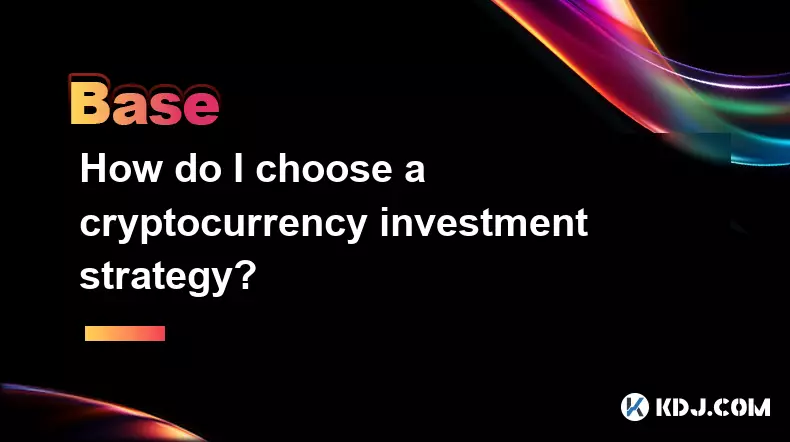
How do I choose a cryptocurrency investment strategy?
Sep 27,2025 at 03:55pm
Understanding Risk Tolerance in Crypto Investing1. Assessing personal risk tolerance is a foundational step when entering the cryptocurrency market. V...
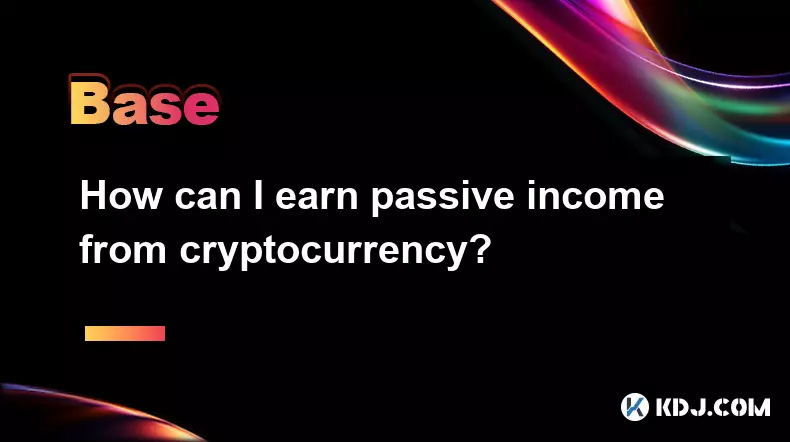
How can I earn passive income from cryptocurrency?
Sep 23,2025 at 10:18am
Staking Cryptocurrencies for Regular Returns1. Many blockchain networks operate on a proof-of-stake (PoS) consensus mechanism, allowing users to earn ...
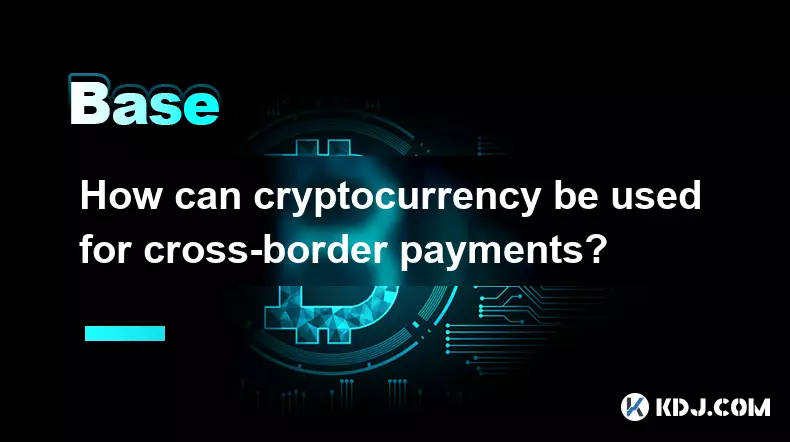
How can cryptocurrency be used for cross-border payments?
Sep 28,2025 at 01:36am
Efficiency in International Transactions1. Cryptocurrency enables near-instant settlement across borders without relying on traditional banking interm...

What are some common methods of cryptocurrency market manipulation?
Sep 27,2025 at 02:55am
Wash Trading and Its Impact on Market Perception1. Wash trading involves an individual or entity simultaneously buying and selling the same cryptocurr...

How do I read a cryptocurrency whitepaper?
Sep 27,2025 at 05:54am
Understanding the Structure of a Cryptocurrency Whitepaper1. Begin by identifying the executive summary, which outlines the project’s core vision and ...

Can I recover lost cryptocurrency?
Sep 25,2025 at 08:18am
Understanding the Nature of Cryptocurrency Loss1. Cryptocurrency operates on decentralized networks, meaning there is no central authority to reverse ...

How do I choose a cryptocurrency investment strategy?
Sep 27,2025 at 03:55pm
Understanding Risk Tolerance in Crypto Investing1. Assessing personal risk tolerance is a foundational step when entering the cryptocurrency market. V...

How can I earn passive income from cryptocurrency?
Sep 23,2025 at 10:18am
Staking Cryptocurrencies for Regular Returns1. Many blockchain networks operate on a proof-of-stake (PoS) consensus mechanism, allowing users to earn ...

How can cryptocurrency be used for cross-border payments?
Sep 28,2025 at 01:36am
Efficiency in International Transactions1. Cryptocurrency enables near-instant settlement across borders without relying on traditional banking interm...
See all articles









































































